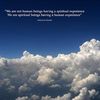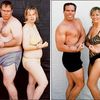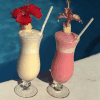28.6.2007 | 00:44
HÉRNA SET ÉG INN SMÁ SEM MIG LANGAR AÐ LESA EF SKE KYNNI AÐ ÉG FENGI LÖNGUN Í KJOTTTTTTTT :)
 Leo Tolstoy
Alice Walker
The Buddha
Plutarch George Bernard Shaw
Albert Schweitzer
Isaac Bashevis Singer
Sir Thomas More
Michael Klaper
Rachel Carson
Howard Lyman | Count Leo Tolstoy, Russian novelist & philosopher, (1829-1910): "If a man earnestly seeks a righteous life, his first act of abstinence is from animal food." Albert Einstein, physicist, 1921 Nobel Prize recipient: "Nothing will benefit human health and increase chances for survival of life on Earth as much as the evolution to a vegetarian diet." "It is my view that a vegetarian manner of living, by its purely physical effect on the human temperament, would most beneficially influence the lot of mankind." Alice Walker, American author, The Color Purple: "The animals of the world exist for their own reasons. They were not made for humans any more than blacks were made for whites, or women for men." Mahatma Gandhi, Hindu pacifist and spiritual leader, (1869-1948): "It is very significant that some of the most thoughtful and cultured men are partisans of a pure vegetable diet." "I do not regard flesh-food as necessary for us at any stage and under any clime in which it is possible for human beings ordinarily to live, I hold flesh-food to be unsuited to our species." The Buddha, Indian avatar, (circa 563-483 B.C.): "All beings tremble before violence. All fear death. All love life. See yourself in others. Then whom can you hurt? What harm can you do?" Leonardo Da Vinci, Italian sculptor, artist, inventor, (1425-1519): "The time will come when men such as I will look upon the murder of animals as they now look upon the murder of men." Plutarch, Greek philosopher, (46-120 A.D.): "The obligations of law and equity reach only to mankind; but kindness and beneficence should be extended to the creatures of every species and these will flow from the breast of a true man, as streams that issue from the living fountain." Henry David Thoreau, American author, naturalist (1812-1862): "Every man who has ever been earnest to preserve his higher or poetic faculties in the best condition has been particularly inclined to abstain from animal food." George Bernard Shaw, Anglo-Irish author and playwright, 1925 Nobel Prize Recipient, (1856-1950): "My situation is a solemn one: life is offered to me on the condition of eating beefsteaks. But death is better than cannibalism. My will contains directions for my funeral, which will be followed, not by mourning coaches, but by oxen, sheep, flocks of poultry, and a small traveling aquarium of live fish, all wearing white scarves in honor of the man who perished rather than eat his fellow creatures. It will be, without the exception of Noah's Ark, the most remarkable thing of its kind ever seen." "The average age (longevity) of a meat-eater is 63. I am on the verge of 85 and still at work as hard as ever. I have lived quite long enough and am trying to die, but I simply cannot do it. A single beefsteak would finish me, but I cannot bring myself to swallow it. I am oppressed with a dread of living forever. That is the only disadvantage of vegetarianism." Plato, Greek philosopher, (circa 428-347 B.C.): "The Gods created certain kinds of beings to replenish our bodies; they are the trees and the plants and the seeds." Albert Schweitzer, M.D., Alsatian philosopher and medical missionary, 1952 Nobel prize recipient, (1875-1965): "--There slowly grew up in me an unshakable conviction that we have no right to inflict suffering and death on another living creature, unless there is some unavoidable necessity for it." Benjamin Spock, M.D, the famous Dr. Spock pediatrician and author, (1903-1998): "When I was 88 years old, I gave up meat entirely and switched to a plant foods diet following a slight stroke. During the following months, I not only lost 50 pounds, but gained strength in my legs and picked up stamina. Now, at age 93, I'm on the same plant-based diet, and I still don't eat any meat or dairy products. I either swim, walk, or paddle a canoe daily and I feel the best I've felt since my heart problems began." Isaac Bashevis Singer, Yiddish Laureate of literature, 1978 Nobel Prize recipient, (1904-1991): "If there would come a voice from God saying, 'I'm against vegetarianism!' I would say, 'Well, I am for it!' This is how strongly I feel in this regard." Benjamin Franklin, American statesman, inventor, (1706-1790): "My refusing to eat meat occasioned inconveniency, and I have been frequently chided for my singularity. But my light repast allows for greater progress, for greater clearness of head and quicker comprehension." Sir Thomas More, Irish author and poet, (1478-1535): "The utopians feel that slaughtering our fellow creatures gradually destroys the sense of compassion, which is the finest sentiment of which our human nature is capable." John Robbins, author of Diet for a New America and The Food Revolution: "It is increasingly obvious that environmentally sustainable solutions to world hunger can only emerge as people eat more plant foods and fewer animal products. To me it is deeply moving that the same food choices that give us the best chance to eliminate world hunger are also those that take the least toll on the environment, contribute the most to our long-term health, are the safest, and are also, far and away, the most compassionate towards our fellow creatures." Michael Klaper, M.D., American author and international lecturer: "People are the only animals that drink the milk of the mother of another species. All other animals stop drinking milk altogether after weaning. It is unnatural for a dog to nurse from a mother giraffe; it is just as unnatural for a human being to drink the milk of a cow." Michael Greger, M.D., American medical doctor, author, lecturer: "I think of veganism humbly and holistically. It's about taking personal responsibility in a world so full of needless suffering. It's challenging one's self to open one's eyes and question society's assumptions and habits. It's about critical thinking and compassion and how we would like to see the world evolve." Rachel Carson, American author, Silent Spring (1907-1964): "We cannot have peace among men whose hearts delight in killing any living creature. By every act that glorifies or even tolerates such delight in killing, we set back the progress of humanity." Reverend Dr. Andrew Linzey, Anglican priest, professor and author, Oxford University Chaplain: "The Christian argument for vegetarianism is simple: since animals belong to God, have value to God and live for God, then their needless destruction is sinful." Howard Lyman, American author and international lecturer: "When we dare to think of the environmental threats facing our planet: air pollution, water pollution, land contamination, soil erosion, wildlife loss, desertification (the turning of verdant land into a condition resembling natural desert), rain forest destruction and global warming, humankind's profligate consumption of animal products has made a significant contribution to all of these ills, and it stands as the leading cause of many of them. Certainly these problems wouldn't disappear overnight but no other lifestyle change could produce as positive an impact on these profound threats to our collective survival as the adoption of a plant-based diet." |
Albert Einstein
Mahatma Gandhi
Leonardo Da Vinci
Henry David Thoreau
Plato
Benjamin Spock
Benjamin Franklin
John Robbins
|



















 agny
agny
 malacai
malacai
 alheimurinn
alheimurinn
 beggabjuti
beggabjuti
 brjann
brjann
 brandarar
brandarar
 austurlandaegill
austurlandaegill
 saxi
saxi
 ellyarmanns
ellyarmanns
 ellahelga
ellahelga
 erla1001
erla1001
 erna-h
erna-h
 kamilla
kamilla
 finder
finder
 gilsneggerz
gilsneggerz
 gudmundurhelgi
gudmundurhelgi
 zeriaph
zeriaph
 gtg
gtg
 heidistrand
heidistrand
 heidihelga
heidihelga
 heringi
heringi
 jensgud
jensgud
 enoch
enoch
 jonhjorleifur
jonhjorleifur
 prakkarinn
prakkarinn
 angel77
angel77
 kallimatt
kallimatt
 kreppu
kreppu
 krist
krist
 lauola
lauola
 leifurl
leifurl
 vonin
vonin
 larusg
larusg
 ludvik
ludvik
 mofi
mofi
 perlaoghvolparnir
perlaoghvolparnir
 ragganagli
ragganagli
 ruth777
ruth777
 lovelikeblood
lovelikeblood
 straitjacket
straitjacket
 scorpio
scorpio
 svavaralfred
svavaralfred
 laufabraud
laufabraud
 josira
josira
 asdisran
asdisran
 poppoli
poppoli
 aronsky
aronsky






Bæta við athugasemd [Innskráning]
Ekki er lengur hægt að skrifa athugasemdir við færsluna, þar sem tímamörk á athugasemdir eru liðin.